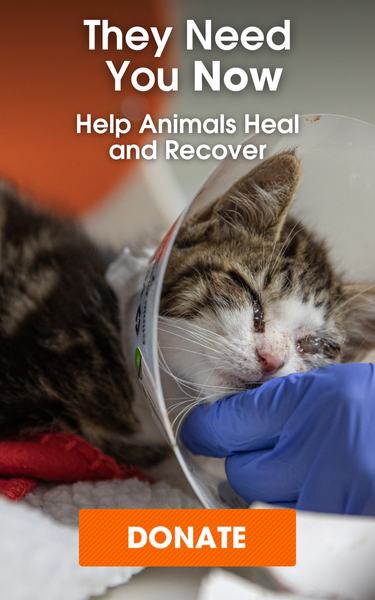
Rabbit Pet Parents: Beware of These Common Pet Toxins!

As many pet parents may already know, rabbits have unique anatomy, sensitivities and behaviors that make them different from other furry friends like dogs and cats. They’re herbivores that forage continuously and are known for being curious. Their inquisitive nature is what also makes them likely to ingest unintended items when given the opportunity. That’s why our experts at the ASPCA Animal Poison Control Center (APCC) have put together this list of common rabbit toxins and their effects so that you can keep your bunny pals safe and happy at home.
Signs and Symptoms of Illness
When rabbits are sick, they often hide it well, so it’s a good idea to be in-tune with possible behaviors that could indicate illness. Signs of concern include:
- Decreased appetite or water intake
- Lack of fecal production
- Diarrhea
- Bruxism or teeth grinding
Common Rabbit Toxins
Fipronil: The ingredient in some insecticides and parasite medications, fipronil is one of the most severe, life-threatening toxicities we can see in rabbits. Exposure often occurs inadvertently when canine or feline topical medications are applied to rabbits. Even a small amount of fipronil can lead to seizures, depression, and gastrointestinal signs in rabbits. The seizures can be severe, may be delayed, and can last for weeks. It is always recommended to speak with your primary veterinarian before using any medications or topical products on or around pets.
Avocados: All parts of an avocado can cause gastrointestinal symptoms and lethargy, as well as potentially life-threatening heart and lung issues. In nursing rabbits, there is also risk for a painful inflammation of the mammary gland following exposure.
Plants: Different plants carry different toxicity concerns, but the APCC receive calls commonly for a group of houseplants called ‘insoluble calcium oxalate’ containing plants. Common houseplants in this category include pothos (Epipremnum sp.), philodendron (Philodendron sp.), calla lily (Zantedeschia aethiopica) and peace lily (Spathiphyllum sp.), amongst others. These exposures can cause irritation within the mouth, gastrointestinal symptoms (bruxism, decreased appetite), lethargy and, rarely, swelling in the back of the mouth that can cause respiratory difficulty. It’s best to keep any houseplants well out of your pet’s reach.
Chocolate: Rabbits are less sensitive to chocolate’s heart and stimulatory effects compared to dogs, but they are more sensitive to the gastrointestinal effects which can be especially serious given their anatomy.
Rodenticides: Rabbits are typically small in size and, therefore can have serious consequences when even tiny amounts of rodenticide are consumed. If your rabbit may have ingested rat or mouse bait, please contact your veterinarian immediately.
If you suspect your pet has been exposed to any poisonous substances or potentially toxic plants, contact your veterinarian or call the ASPCA Animal Poison Control Center at (888) 426-4435 immediately.
